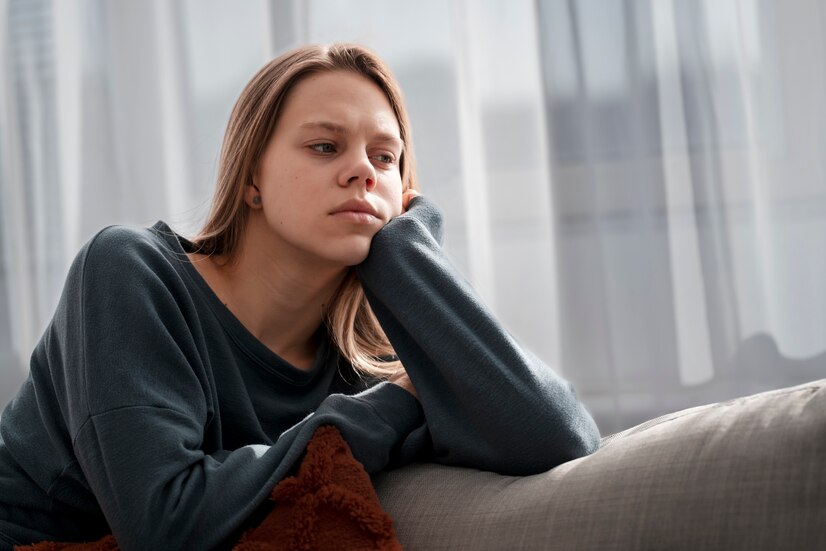Table of contents
Depression isn’t just feeling sad—it’s a constant weight that clouds your thoughts, drains your energy, and disconnects you from the world. I’ve lived with depression for years, trying therapy, medications, and lifestyle changes. Some helped temporarily, but side effects and emotional numbness often followed. It wasn’t until I discovered CBD to manage my depression that I began to feel a real shift—one that felt natural, stable, and empowering.
In this post, I’ll share my personal experience with CBD, what the research says about its potential for depression, and helpful tips if you’re considering it for your own mental health journey.
Living with Depression: A Silent Struggle

Before trying CBD, my depression symptoms were unpredictable. Some days were better than others, but many were marked by overwhelming fatigue, hopelessness, and an inability to focus. I tried various SSRIs and other antidepressants. While some worked for a while, they came with downsides—weight gain, low libido, and emotional detachment.
I knew I needed a gentler, more natural approach—one that didn’t just mask symptoms but supported my emotional balance.
Discovering CBD to Manage My Depression

Cannabidiol, or CBD, is a non-intoxicating compound found in hemp and cannabis plants. Unlike THC, it doesn’t get you high. Instead, it interacts with your endocannabinoid system (ECS), which plays a role in regulating mood, sleep, appetite, and stress response.
I began reading studies about the effects of CBD on serotonin receptors—specifically the 5-HT1A receptor, which is also targeted by many antidepressants. Encouraged by the research and testimonials, I decided to give CBD a try.
How I Incorporated CBD into My Routine
I started with a CBD oil tincture, taking 15 mg twice daily—once in the morning and once in the evening. I chose a full-spectrum formula to take advantage of the entourage effect (where cannabinoids and terpenes work synergistically).
Within 2–3 weeks, I began noticing:
- ✅ More emotional balance and fewer mood swings
- ✅ Improved sleep quality
- ✅ Better focus and motivation
- ✅ Less anxiety and tension in social situations
- ✅ Reduced need for prescription antidepressants
Over time, I was even able to lower the dosage of my traditional medication (under supervision from my doctor), making CBD a complementary part of my mental wellness plan.
What the Research Says About CBD and Depression
While research is still emerging, early studies and clinical trials show promising results for CBD’s role in mood regulation. A 2019 study published in Molecules found that CBD has “anxiolytic, antipsychotic, and neuroprotective” effects, potentially benefiting people with anxiety and depressive disorders.
CBD may help depression by:
- Stimulating serotonin receptors
- Reducing inflammation in the brain (a potential contributor to depression)
- Promoting neurogenesis (the growth of new brain cells)
- Modulating the stress response via cortisol regulation
It’s not a replacement for therapy or medication, but for many—including myself—it can be a powerful tool in a larger healing toolkit.
My Tips for Using CBD to Manage Depression
- Start low and go slow: Begin with a low dose and increase gradually based on how you feel.
- Be consistent: CBD works best when taken regularly.
- Use high-quality products: Look for third-party tested, full-spectrum CBD oils.
- Track your progress: Journal your mood, sleep, and symptoms to monitor changes.
- Talk to your doctor: Especially if you’re on antidepressants or other medications.
FAQs About CBD to Manage My Depression
CBD may help manage symptoms but should not be seen as a replacement unless approved by a doctor. It’s often most effective as part of a combined approach.
Some people notice effects in a few days, while others may need 2–4 weeks of consistent use to experience mood improvements.
Full-spectrum or broad-spectrum CBD oils are often more effective due to the presence of additional beneficial cannabinoids and terpenes.
Side effects are generally mild and may include drowsiness, dry mouth, or slight changes in appetite. Most people tolerate it well.
No, most hemp-derived CBD products are available over the counter in many countries and U.S. states, though local laws vary.
Final Thoughts
Managing depression is an ongoing journey, and no single solution works for everyone. But for me, adding CBD to manage my depression has brought clarity, emotional relief, and a greater sense of control over my mental health.
If you’re feeling stuck, overwhelmed, or discouraged, know that there are options beyond conventional medications. With the right guidance and consistency, CBD could be a natural ally in your path toward healing and balance.





